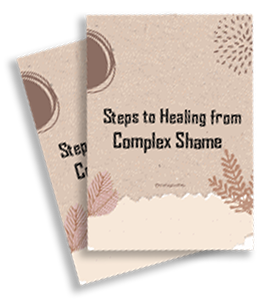
7 Tips for Healing After a Breakup
Let’s face it, breakups feel like trauma—especially when you didn’t want it. And even if you were the one who initiated it, it can still crush you. Sometimes we have to do what we have to do, even though it...
Do you and your partner disagree on a big issue? Maybe he’s a republican, you’re a democrat. Maybe he thinks COVID is a scam and you are fearful of your health. Maybe he doesn’t care about the movement and you...
June 26, 2020

Do you and your partner disagree on a big issue?
Maybe he’s a republican, you’re a democrat. Maybe he thinks COVID is a scam and you are fearful of your health. Maybe he doesn’t care about the movement and you consider yourself an ally- or maybe it’s another pretty big issue. What do you do when you and your otherwise amazing partner just can’t agree?
First, you’ve got to decide if it’s a deal-breaker. You have to get real and honest with yourself about how you feel about the issue long term and all the ways that it can manifest in your life moving forward. Does this touch on your core values? If so, it may be a non-negotiable dealbreaker- but not necessarily. Only you can answer this question for yourself. But you must remove some layers of denial to do so.
Ask yourself why you feel that the two of you have to agree on this? And can you be happy if each of your positions never changes?
If it’s not a deal-breaker, but just a big issue- then the good news is that many couples can make it work with major differences, like differing religious beliefs and differing political beliefs. I wouldn’t suggest it, but sometimes you get far into a relationship or even marriage before some of these issues are revealed. It usually happens because one or both of you have changed your stance or the issue wasn’t important enough to either of you at the time you made your relationship a thing.
If a compromise isn’t’ an option, then you must agree to disagree. But how do you hold your beliefs strongly and maintain the relationship?
It isn’t easy. At all. But it is doable.
1. You have to let go of your expectation of the perfect-fit partner. Although there may be a small percent of the married population who fit each other like a glove, that isn’t the norm and that’s okay. He’s different than you are and he experiences the world differently. I’m not telling you that you have to settle. You don’t. Ever. But it may not be realistic to think that you two will always agree on everything- even the big things. Relationships can withstand a hefty dose of disagreement if both also have a healthy dose of respect for each other.
2. Understand that all behavior makes sense in its context, meaning there is a very good reason why your partner disagrees with you. It actually makes complete sense if you dissect the evolution of it. The way he thinks is a combination of his personality intersecting with his environment and teachings during his foundational years – plus what he currently chooses to expose himself to.
You can actually understand someone else’s point of view without agreeing with them.
And if you feel that it’s a moral issue, do not be afraid to call it what it is. You have to speak your truth in order to have health, but it is important to understand that he sees it differently.
3. Recognize that you can learn from each other. If you are open to allowing him to educate you, you may learn something. If you aren’t trying to shove your rhetoric down his throat, he may be open to hearing your view on a certain issue as well.
4. It may be a huge issue like racism which is a current battle I am seeing in my clients right now. You may feel that you feel your spouse is a racist and you can’t even live with him anymore. I know this sounds difficult, but think back to when and how your eyes were opened to the issues. Maybe you’re a person of color and your eyes have always been open, but regardless, think about things you have been ignorant of until you were taught.
We humans don’t learn well from a defensive stance. You need to first engage him from a place of understanding with a desire to educate, not condemn. Educate yourself on his internal world, his struggles, and experiences, to help you understand how he came to hold the beliefs that he does. Truly demonstrating a desire to know your partner deeply will reward you with a happier relationship and deeper connection.
5. Respect. Generally, I would tell you that you need to respect your partner as an individual and respect his way of thinking. But if his way of thinking is nothing that you can respect, you can still be respectful in the way that you approach the topic. Next, work towards understanding it, without compromising your beliefs in any way.
6. Don’t bring up the topic just to argue. Get rid of dialogue that says “I am right and you are wrong.” Instead, say we disagree. Any language that has you two agreeing on anything is better. Use I statements instead of blaming ‘you’ statements.
If you do need to have a discussion about it, do so in a logical way that removes as much emotion as possible. Each of you can create and share a list that states your position and why you feel the way that you do.
Sometimes writing it down can reveal some gaps in your own thinking or vice versa, which helps to remove the emotion that is keeping you from seeing your partner’s stance more clearly.
You two do not have to see eye to eye on everything in order to have a healthy relationship. You do need to agree on most of the big issues, but disagreeing on one doesn’t have to be a deal-breaker. In fact, your marriage is way more important than which one of you is right,.
Focus instead on the places of connection and agreement in your relationship. Remember why you fell in love to begin with and appreciate your differences.
Reach out if you need some help. You’ve got this!

You deserve a healthy, loving relationship and it starts with You. Learn how to untangle Complex Shame™ and co-dependency to finally have the beautiful, secure relationship with yourself and others that you’ve always wanted.
Subscribe and as a thank you, I’ll send you the Steps to Healing from Complex Shame™.

Let’s face it, breakups feel like trauma—especially when you didn’t want it. And even if you were the one who initiated it, it can still crush you. Sometimes we have to do what we have to do, even though it...

Guest Post, written by Farlyn Lucas Sometimes, work throws our relationships a curveball by making distance a thing temporarily. Careers like corporate employees, or in healthcare like traveling nurses, can face unpredictable work schedules. Without communication technology, this often puts...

Are you that mom who would rather stick an icepick through your eye than talk to your teen daughter about sex (seriously, it doesn’t have to be that bad)? Or maybe the idea of sex conversations makes you squirm a...
©2025 Dr. Zoe. Designed And Developed By Ogrelogic. Privacy Policy